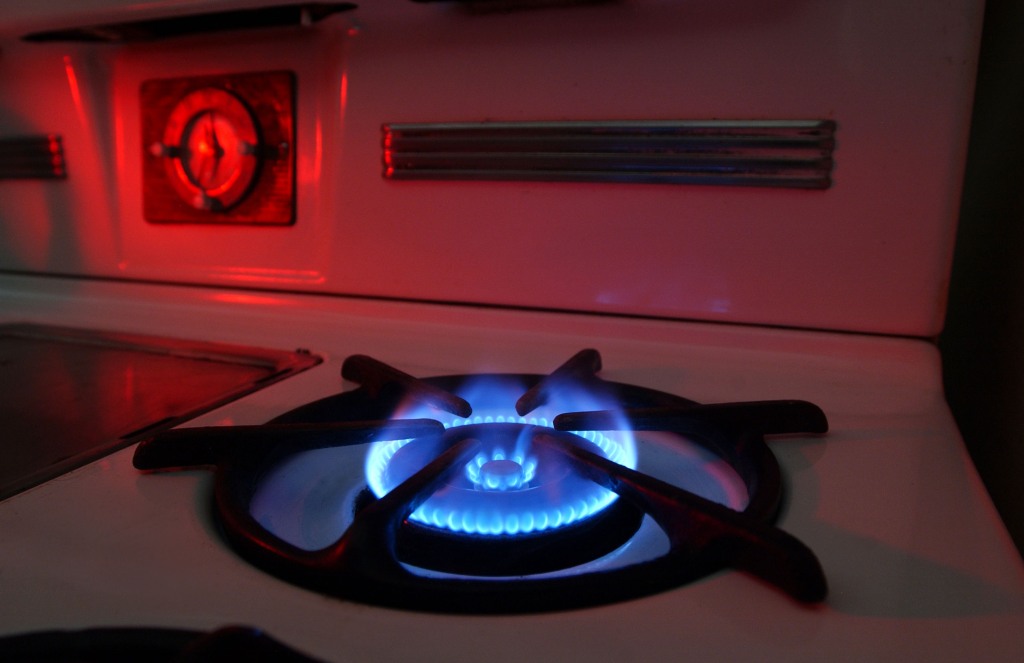
After a three-judge panel ruled that cities do not have the authority to ban the installation of natural gas equipment in newly constructed buildings, Berkeley is now asking for a do-over.
Berkeley City Attorney Farimah Faiz Brown filed a petition Wednesday requesting an “en banc” rehearing with 11 new judges, arguing that the appeals court’s April 17 opinion was fundamentally flawed, erroneously broad and “in every way extraordinary.”
If it’s allowed to stand, she said, the previous ruling could invalidate a host of other state and local efforts to craft safety regulations on essential matters such as food, fire safety and water quality.
The city passed its first-in-the-nation gas-ban ordinance in 2019, pioneering an approach to reducing carbon emissions and pollutants that spread to nearly two dozen cities in the Bay Area and across the country.
But the California Restaurant Association quickly filed a lawsuit seeking to safeguard natural-gas kitchen appliances, claiming that food cooks better over gas. The U.S. Court of Appeals for the Ninth Circuit agreed with the restaurant trade group’s argument that the 1975 Energy Policy and Conservation Act, originally an oil-crisis-era attempt to regulate the nation’s energy, restricts local governments from controlling the energy use of equipment.
“By enacting EPCA, Congress ensured that states and localities could not prevent consumers from using covered products in their homes, kitchens and businesses,” the April ruling said.
But Brown argues that the 48-year-old laws’s “text, structure and enactment history and this Court’s governing precedents make exceptionally clear Congress did nothing of the sort.”
If a majority of active Ninth Circuit judges vote to review the case, the Chief Judge and 10 other randomly selected judges will take up the case en banc and issue a new opinion.
As the issue continues slogging through the courts, Berkeley’s ordinance remains in effect, since the Ninth Circuit’s ruling is not final and did not include a stay or injunction that suspended the gas ban.
In her petition, Brown said that the ruling calls into question the ability for elected officials to effectively protect residents’ health and wellbeing — conflicting with Supreme Court precedent, previous Ninth Circuit decisions and the Constitution.
That’s exactly why Berkeley Councilmember Kate Harrison, who authored the 2019 ordinance, said the city is challenging the Ninth Circuit’s ruling.
“Making sure we protect the climate and our residents’ safety is sort of a long-standing tradition in California that we take seriously. I think that’s something that we cannot just give up on,” Harrison said in an interview. “It’s a long enshrined idea that local and state governments have rights to do that.”
Additionally, she said the fear expressed by some opponents of the ban that natural gas cooktops will be completely gutted and banished from cities that pass similar laws isn’t true; Harrison emphasized that Berkeley’s ban only impacts newly constructed buildings, which — at least in the Bay Area — means that the ordinance primarily affects for-rent, multi-unit structures.
Conversely, specific exceptions that have been carved out of the federal Energy Policy and Conservation Act law mean that the appeals court ruling doesn’t impact cities that took a building code-based approach to natural gas bans, including Mountain View, Palo Alto and Santa Clara.
Harrison said the looming threat to local control is why Berkeley doesn’t opt to instead rewrite its legislation to be in line with that approach, rather than go back to court and challenge the CRA’s lawsuit and the Ninth Circuit’s decision.
Denise Grab, a principal with green-energy think tank RMI, said buildings and the appliances inside them, such as water heaters and furnaces, now burn the same amount of gas as all of California’s power plants — generating more than four times as much smog-causing nitrogen oxide pollution, which damages people’s lungs and respiratory system.
Additionally, children who grow up in a home with a gas stove have a 42% higher risk of experiencing asthma symptoms, compared to their peers who lived in homes with an electric stove.
“(Emissions from building appliances) was small compared to other sources of pollution — fossil fuel power plants and vehicles — but as we’re cleaning up those other sources, regulators and communities and folks are just realizing how much of a threat these appliances are to our health,” Grab said. “We now have superior — not just equivalent — devices that are available on the market.”
As the state continues moving towards electrification and decarbonization, prices of electric devices have gone down, while the availability of the technology itself — and people’s comfort levels using it — have gone up. Grab said Berkeley challenging the Ninth Circuit’s ruling is essential to fostering and expanding that trend.
“There’s so many benefits of these new appliances — increased efficiency, increased flexibility and increased precision in cooking,” she said. “I think it’s important and essential that we help support communities who maybe don’t necessarily have the means to make those replacements on their own to help support folks to do that.”
𝗖𝗿𝗲𝗱𝗶𝘁𝘀, 𝗖𝗼𝗽𝘆𝗿𝗶𝗴𝗵𝘁 & 𝗖𝗼𝘂𝗿𝘁𝗲𝘀𝘆: www.mercurynews.com
𝗙𝗼𝗿 𝗮𝗻𝘆 𝗰𝗼𝗺𝗽𝗹𝗮𝗶𝗻𝘁𝘀 𝗿𝗲𝗴𝗮𝗿𝗱𝗶𝗻𝗴 𝗗𝗠𝗖𝗔,
𝗣𝗹𝗲𝗮𝘀𝗲 𝘀𝗲𝗻𝗱 𝘂𝘀 𝗮𝗻 𝗲𝗺𝗮𝗶𝗹 𝗮𝘁 dmca@enspirers.com


